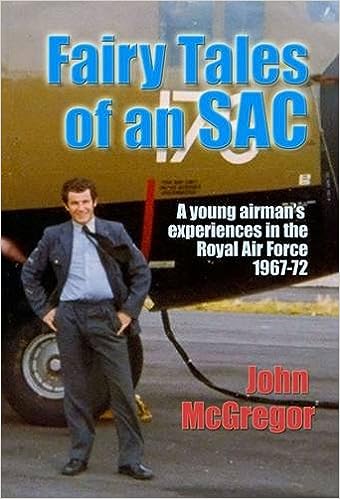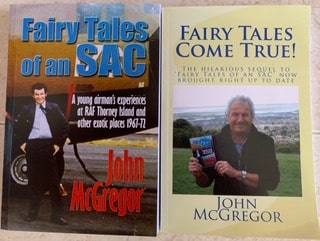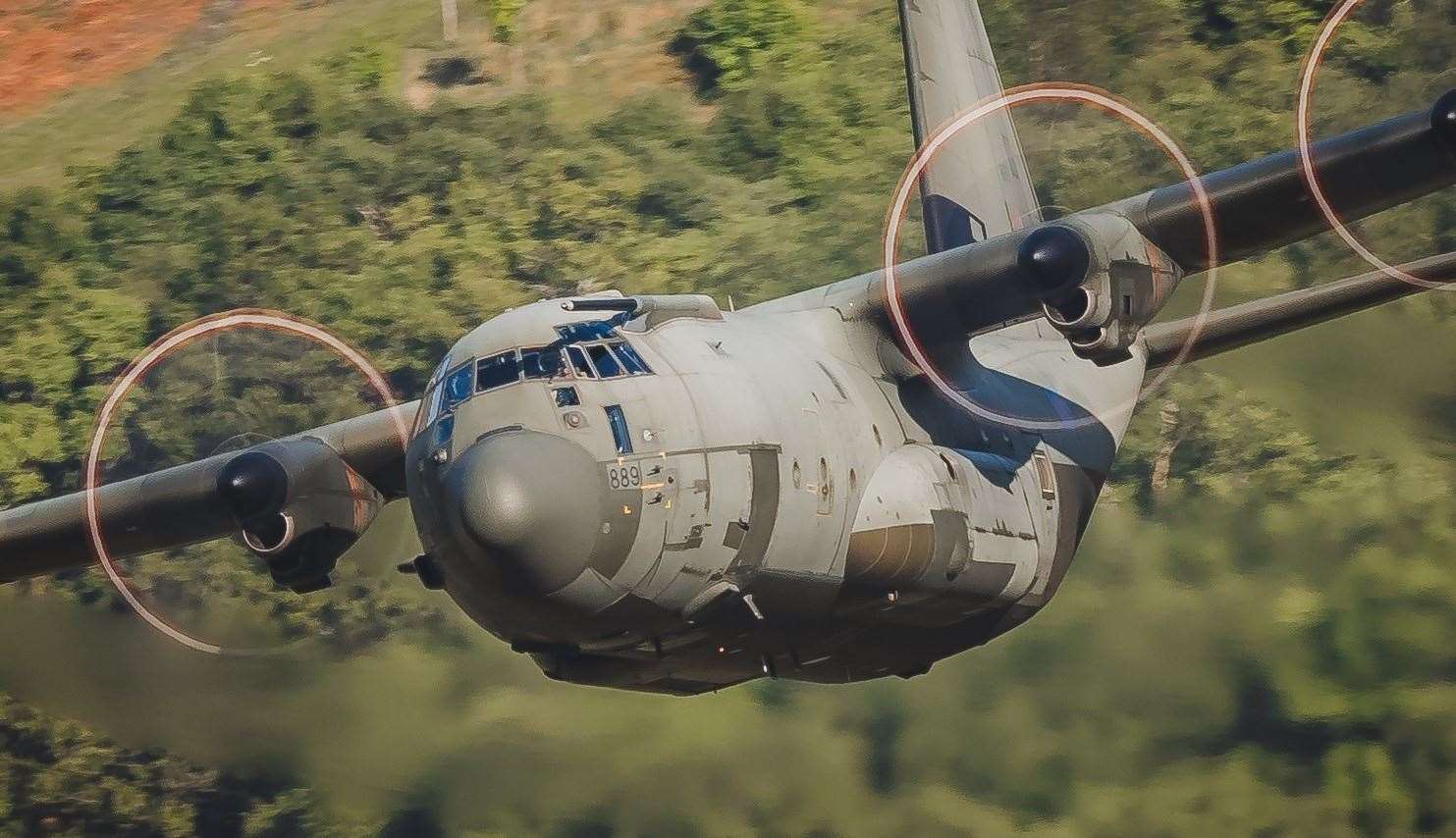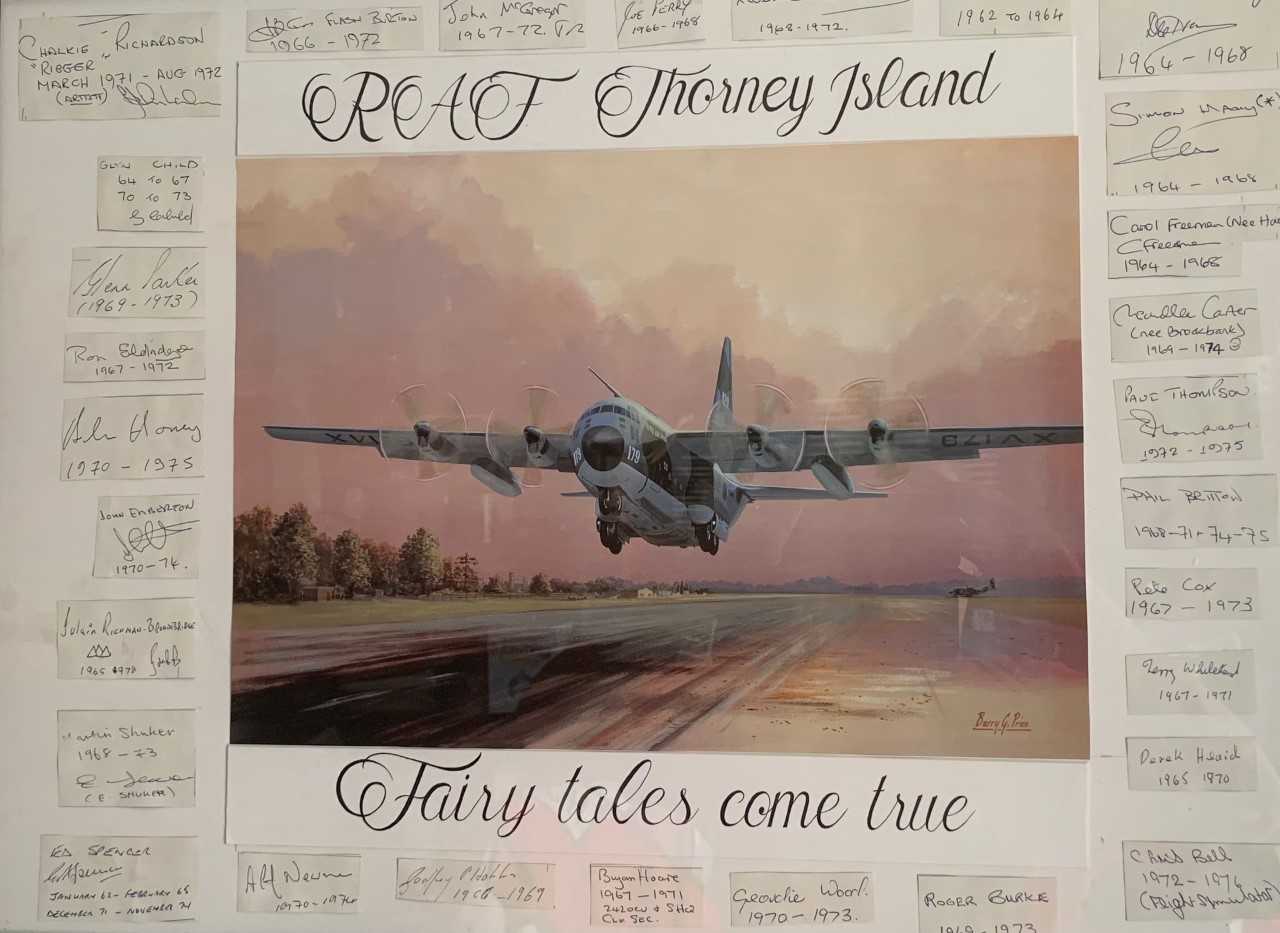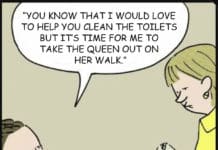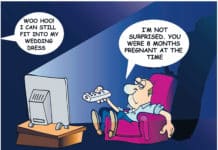From my vantage point in the air I looked down at the advancing Lockheed C130 Hercules as it approached the aircraft carrier. Surely, I thought, that huge transport aircraft is not going to attempt to land on the deck? But yes, the Herc lined up and prepared to land – my heart was in my mouth. The pilot put the plane down immediately at the beginning of the very short runway. She bounced once gently before the colossal thrust of full reverse was immediately applied and the massive airplane safely screeched to a stop with full brakes on, with what seemed only a little runway to spare – phew!
´And if you think that was scary, watch this´ said the corporal running the film we were watching. To my amazement, from the same angle presumably shot from a helicopter hovering near the carrier the Herc re-appeared at the edge of the runway with all four engines roaring away but not moving, presumably with the brakes full on. Suddenly the tail dropped, the nose lifted a little as the plane moved forward, slowly at first then with increasing pace hurtling along the short runway towards the edge.
No chance, I thought, she’ll just go straight over into the sea. But I was wrong and although the Hercules seemed to dip a little as she swept over the edge of the carrier she picked up like a giant silver bird and steadily gained height. All I can say is that I’m glad I wasn’t aboard at the time… This was the mighty Lockheed C130 Hercules and we were just being introduced.
You may have seen on the news recently that the Royal Air Force´s workhorse for the last fifty seven years has finally been withdrawn after wonderful service all over the world. I had the privilege of getting close and working on the Herc soon after they were introduced to the RAF in 1966. The Hercules was not the biggest workhorse in the RAF at the time, there were gigantic aircraft like Galaxies at RAF Fairford, where you could hold a dance in the hold with a stage at one end, although these were huge lumbering affairs. But for middle-sized loads like a small truck or two, 300 paratroopers, God knows how many boxes of whatever supplies, the Herc had no equal for fast, safe delivery around the world, coupled with an enormous fuel capacity to fly over oceans. Personally, I often flew over some as ground crew, although I have to say they were very uncomfortable, especially when enduring a flight in excess of 13 hours to cross the Atlantic – but we visited some great places and their safety record is first class.
For ground crew they were good aircraft to work on requiring maintenance, yes, but not unpleasant or difficult to work on – like some. I was a radio mechanic so relatively simple black box changing was my forte. To do my job meant taking away the steps leading from the main hold up to the flight deck where you were roundly cursed by the other trades as they struggled to get up and down without the ladder. Underneath there was a tunnel accessible on your hands and knees where on either side the units that made-up the radio and radar systems were situated. Most of the systems were comprised of either three, four or five black metal boxes and any malfunction was almost always to be found within one of the boxes. We kept spare ones in our stores up on the airfield so when a ´snag´ was reported by the aircrew simple elimination of these in turn usually cured the fault and the aircraft was serviceable again in a very short time. That was first line servicing which I did happily for four years on the Hercs: simple but very effective in keeping the aircraft flying as easily and quickly as possible. That and other basic aircraft handling duties made up my job in the RAF and I loved it, making friends and travelling around the world.
All good things come to an end, I left in 1972 but carrying the stories in my head for years in 2008 I wrote a book* about my adventures which led to a reunion in 2012 with many old friends from those great days. My greatest friend in life and I organized it together and recently we celebrated ten years of reunions although we missed one in 2020 due to Covid. Sadly my great friend passed away in 2019, he is very much missed by us all.
At this year´s May reunion I was amazed to be given a framed picture of one of our original Hercules XV 179 **which was signed by all my old colleagues who come every year to our reunion. We had 36 oldies this year, and yes, inevitably some are no longer with us, but we still enjoy each other´s company very much, relieving those great days in the UK and abroad, in uniform and out. The heroic Hercules plays a great part in the stories.
*John´s books ´Fairy Tales of an SAC´ and the 2015 sequel ´Fairy Tales Come True´ are available on Amazon.
** Tragically XV 179 was shot down by insurgents in Iraq in 2005, killing all nine crew.
By John McGregor

